The 40 best albums of 2021, from Adele’s 30 to Billie Eilish’s Happier Than Ever
From pop-punk that captured Gen-Z anxiety to otherworldly hip-hop, 2021’s greatest albums felt designed to help us process – or escape – what we were faced with over the past 12 months. The Independent’s music team count down their favourites
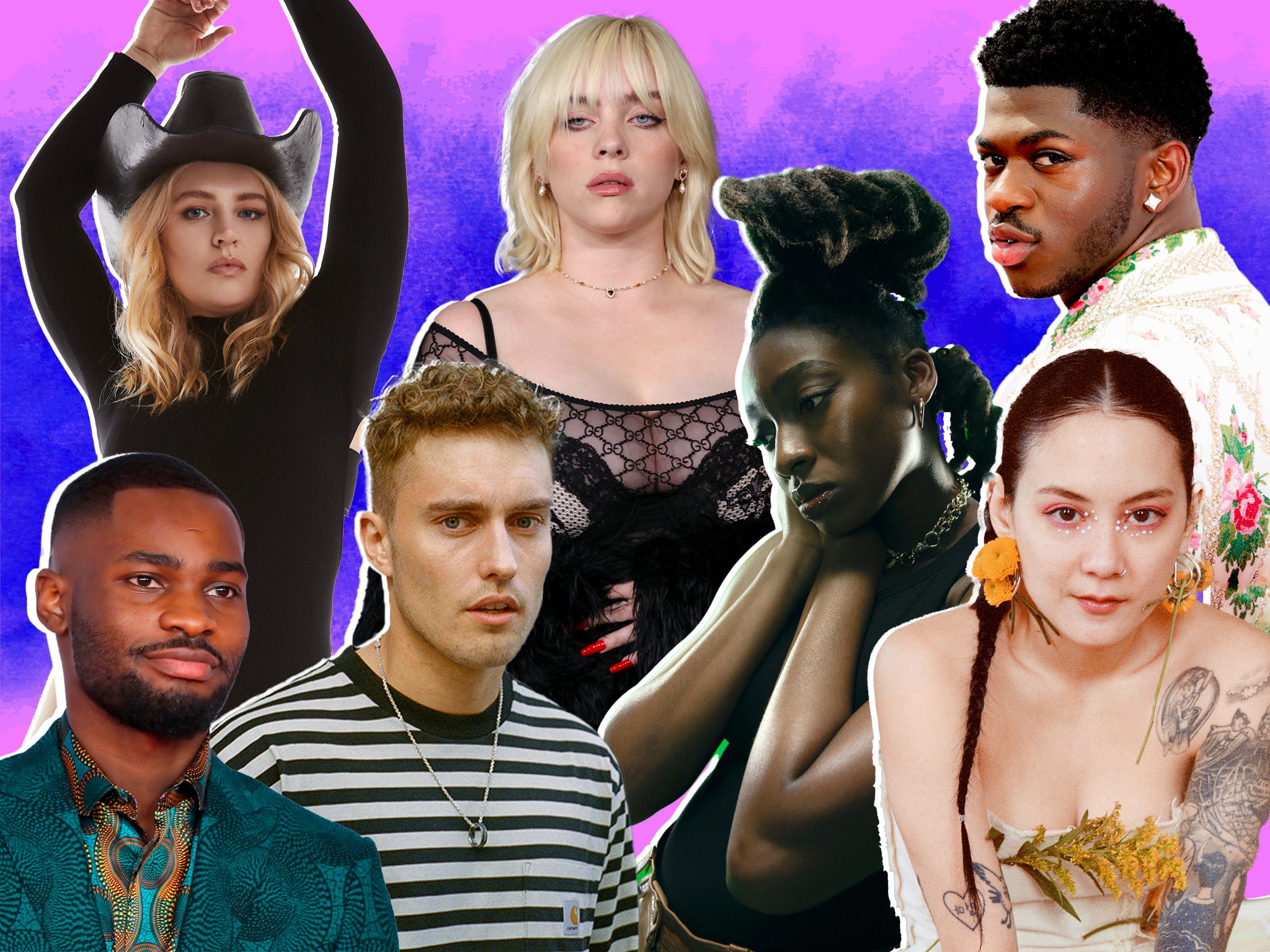
In 2020, we dealt with the deafening silence caused by festival cancellations and club shutdowns. Not in 2021. Not only did fans return to music venues and festival fields in their droves, but they also experienced a staggering rate of new releases. Vinyl presses had never been so busy; artists struggled to find support acts for their tours, because everyone was booked. Critics buckled under the sheer volume of major albums out each week: Ed Sheeran, Justin Bieber, Billie Eilish, Taylor Swift, Abba, Drake, Lorde, Adele...
If 2020’s albums were designed to uplift while we (most of us, at least) followed the rules and stayed at home, 2021’s were there to help us process – or escape. Via a pop-punk renaissance, young artists such as Olivia Rodrigo and Willow Smith spoke to the anxieties of their Gen-Z peers. Rappers found new ways to subvert expectations: Lil Nas X, Tyler, the Creator and Doja Cat went so far as to create their own worlds, inviting fans to explore with them. Other artists wanted to introduce people to possibly unfamiliar but very real territories: North Shields’ Sam Fender, west London’s AJ Tracey, east London’s Ghetts and New York’s Nas all offered visceral, true-to-life portraits.
Then there were the introverts – Little Simz, Dave, James Blake, William Doyle, Arlo Parks – dealing out poetical truths over gorgeous instrumentation. Their words offered beauty and comfort in these still-uncertain times.
Here are The Independent’s 40 favourite albums of 2021 (reviews by Helen Brown, Annabel Nugent, Alexandra Pollard and Roisin O’Connor).
40) Great Spans of Muddy Time – William Doyle
Having retired the East India Youth moniker that won him critical raves and a Mercury Prize nomination, William Doyle returned with this resplendent work. Great Spans of Muddy Time (named after the term for depression coined by English horticulturalist Monty Don) is a Darwinian voyage through electronic soundscapes. Doyle’s voice – a gentler version of Canadian-American folk singer Rufus Wainwright’s theatrical croon, or Perfume Genius, perhaps – crests waves of bloopy synths, wades through swamps bogged down with sludgy bass, and plods determinedly beneath glitchy, torrential downpours. His lyrics are abstract and whimsical: on “Semi-Bionic” he sings wistfully, “I was dreaming of/ Being home with my fullness/ Then I sang into life/ Waiting for waking up.” What a delightful and peculiar album. Roisin O’Connor
39) lately I Feel EVERYTHING – Willow
Back in 2014, Willow Smith and her brother Jaden gave a mind-melting interview in which they discussed everything from theoretical physics to “prana energy”. She’s clearly into the idea of reincarnation, too. On her rollicking new album, lately I Feel EVERYTHING, she’s killed off her 2019 psychedelic soul persona and returned as an emo-pop star. Critics have complained that Smith’s earlier albums don’t reveal much more than we already know about the daughter of Hollywood superstars Will and Jada Pinkett-Smith. While I think female artists are often penalised for trying to maintain an artistic level of mystique (Prince and Bowie didn’t have this problem), Smith’s new record does feel like her most personal. Her lyrics have a stream-of-consciousness style, as though she’s in the middle of composing a message to a friend or partner. The joy she has in performing these songs is palpable. I hope this incarnation of Smith sticks around a little longer. ROC
38) TAPE 2/FOMALHAUT – Berwyn

TAPE 2/FOMALHAUT reasserts the Trinidad-born Berwyn’s skill at interweaving rap, electronic music and trip-hop. This mixtape comes after his signing to Sony and a spot on the BBC’s Sound of 2021 poll; several tracks depict Berwyn tussling with the trappings of early fame. On “Full Moon Freestyle” he feels guilty about celebrating his success while his friends struggle to get by. “Wrong Ones” has him questioning, over crawling piano notes and scuttling beats, the betrayals of people who should have had his back. “I’d Rather Die Than Be Deported” is magnificently understated: a poignant and vivid account of his struggles on the fringes of London life. It’s a brilliant account of strife by an artist who knows, all too well, that it’s lonely at the top. ROC
37) 30 – Adele
Lyrically, 30 is candid. Adele has always been forthright – every bad feeling you’ve felt, she has confessed to feeling too – but there is a new immediacy here. Earlier songs spoke in platitudes and broad strokes. They projected human emotions onto the natural world – a shallow valley, a shelter in the rain, the river running nearby where she grew up. But the singer of 30 is more literal. Adele unmediated. Adele unfiltered. Adele opening her Notes app at 3am mid-anxiety attack and jotting down whatever comes to mind. Between the typical tirades against herself, Adele braids through moments of affirmation. Where other records have asked for audience participation – for us to fill in the blanks of broad narratives with our own pain – 30 is a conversation between Adele and Adele. She’s her own fairy godmother, whispering incantations of happiness in her own ear and hoping they take. Annabel Nugent
36) An Evening with Silk Sonic – Silk Sonic
Anderson .Paak and Bruno Mars want to put you in a certain kind of mood: think red wine, satin PJs, roaring fire. Together, they are Silk Sonic, a playful but lovingly crafted tribute to Seventies funk and soul. Mars, long since established as the king of retro crooning, goes full-blown pastiche here. “We’re making music to make women feel good and make people dance, and that’s it,” is how he sold it to .Paak, the “Come Down” rapper explained to Rolling Stone. But the attention to detail is just as magnificent; they are as loyal to the music that inspired them as they are to that “feel-good” ethos. Yes, it’s all as cheesy as a vat of fondue. But it’s also a lot of fun. ROC
35) Flu Game – AJ Tracey
In the past, west London rapper AJ Tracey has stuck to a close circle of collaborators, including grime star Giggs and singer/rapper Not3s, who appeared on his self-titled debut in 2017. He could easily have gone with the same names. A pleasant surprise, then, to hear curveballs like the Latin-inflected “Coupé”, dripping with the melodious vocals of US singer Kehlani, on second album Flu Game. On “West Ten”, he reminds listeners that he’s had a lot to do with the ongoing garage revival, deploying a shuffly, bass-throbbing beat alongside a subtle hat-tip to Craig David, who was there for the genre’s birth: “Don’t you know I’m walking away?” There’s a brief dabbling in US-crossover appeal with Chicago singer SahBabii, before he darts back to the familiarity of Ladbroke Grove. AJ’s still running this game on his terms. Fair play. ROC
34) Voyage – Abba
Fans who’ve heard those songs will know that Abba haven’t tried to update the gloriously gaudy vintage tinsel of their Eighties office party sound. Bjorn Ulvaeus and Benny Andersson have always been canny businessmen and they know their appeal has never been about being “on trend”. From the outset it was their gung-ho uncoolness that struck a chord in everybody’s inner outsider. Ulvaeus has said that this is the last we will hear from Abba: they’ve owned the traumas and triumphs of their past with admirable honesty on Voyage. It’s a terrific, family-friendly smorgasbord of a record that delivers all the classic Abba flavours. I think we can let them go now. Tack for the music, guys! Helen Brown
33) Love Will Be Reborn – Martha Wainwright
The song order mirrors the real-life messiness of dismantling a past relationship while falling in love with someone new. The gin-soaked “Report Card” places Wainwright in an empty house and heartbroken over the absence of her children. It is shockingly, beautifully raw: “I hope you’ll miss me/ As much as I miss you/ Cause my heart is always broken/ And I want you to feel the way I do.” She frequently weaponises her voice, snarling and howling her pain into the ether; on the French-spoken piano ballad “Falaise de Malaise”, though, she is whisperingly vulnerable. What an extraordinary artist Martha Wainwright is. ROC
32) To Hell With It – PinkPantheress
“Short but sweet” is the ethos of mysterious London artist PinkPantheress. She began uploading clips of songs to TikTok in December last year – the full versions aren’t much longer. Similar to Charli XCX’s lockdown album How I’m Feeling Now, these songs are fragmented snatches of thought, delivered over lo-fi jungle beats in PinkPantheress’s laconic, London-accented whisper-drawl. She brilliantly interpolates classical composer Erik Satie’s “Gymnopédie No 1” on woozy garage-influenced opener “Pain”, while she goes full Gen-Z anxiety, accentuated by sombre strings: “And I wish that I could tell all my ex-jobs in retail/ That I should’ve stayed at work/ ‘cause of the A-Levels I failed.” A fantastic debut. ROC
31) California Soil – London Grammar
After a decade of democracy, London Grammar have firmly positioned Hannah Reid as their frontwoman. Reid has always written the band’s lyrics and top lines, with Dan Rothman working on keyboards and scoring and Dot Major adding guitars and other atmospherics. But this time, you can feel Reid as the driving force, taking unblinking aim at the misogyny she has encountered in both her personal and professional life. Initially recorded at Rothman’s Narnia studio (hidden behind a wardrobe in his north London home), the album is built on their signature tiptronic pop and braced by Reid’s sense of purpose. Melodies feel constructed around the cathedral architecture of her pure, classically influenced vocals, which rise in soaring – often breathy – arches capable of carrying more emotional weight than you’d expect. HB
30) Sour – Olivia Rodrigo

On Olivia Rodrgio’s Sour, messy emotions and the raw use of organic instruments break through the shiny surfaces we’ve come to expect from former Disney stars. Produced by Dan Nigro (who co-wrote “drivers license” with her), Sour got its title because Rodrigo is “obsessed with the concept of awesome things in my life – like my relationship with myself and with others – progressively going sour as I get older”. The record opens with “brutal”, a rackety blast of mall-grunge on which she has a blast releasing all her teenage angst and unpicking her shiny celebrity image. “Might quit my job,” she sings. “They’ll all be so disappointed/ Cos who am I if not exploited?” Later she admits she only has two real friends and “I hate every song I write… the ego crush is so severe”. Her wit isn’t quite as sharp as Taylor Swift’s, but her honesty is disarming. HB
29) Friends That Break Your Heart – James Blake
Friends That Break Your Heart isn’t a total return to the wintry grey-blue detachments of Blake’s earlier work. The sadness he expresses here is more engaged and autumnal, as he thinks about the friends he left behind while moving from England to America, and from civilian life into one where he hangs out with Beyoncé and Jay-Z. He moans like an October wind on opener “Famous Last Words”. Raindrops of synth notes plop around him as he concedes: “You’re the last/ You’re the last of my old things/ The cast from my broken limbs.” Deep, distorted vocals shift the gear into the leather-seated R&B groove of “Life is Not the Same”, where he accepts the hopelessness of a long-distance relationship. Few artists can make such heartbreak sound so pretty, while still reflecting on all its weirdness and complexity. HB
28) Pink Noise – Laura Mvula
Being dumped by Sony in 2017 hit Laura Mvula with the emotional force of a romantic break-up. Her first two albums (Sing to the Moon, 2013 and The Dreaming Room, 2017) had been such a success with critics – admired by stars such as Prince and Nile Rodgers – she’d begun to feel like she could “walk on water”. But then came the seven-line email ending her contract. Four years later, “the sting is still there”, she told The Independent in a recent interview. It’s a story that clued-up fans will be able to track throughout the lyrics of her defiant third album, Pink Noise. The anxiety-prone artist’s lines are full of tears and fears of losing herself. But music has always been Mvula’s superpower. She has the discipline of a woman who “slogged through” all eight grades on violin and piano, and who had the grit to stand on stage solo after the Sony split left her unable to pay a band. Here, she wields an expert arsenal of drum pads, funk bass, grinding synths and her own superbly square-jawed vocal punch, smacking down the self-doubts that pop up in her path. HB
27) Path of Wellness – Sleater-Kinney
Riot grrrls Corin Tucker and Carrie Brownstein’s Path of Wellness is a more torn-and-frayed affair than 2019’s St Vincent-produced The Center Won’t Hold. Self-produced during the pandemic, the album captures the feel of two minds bouncing off each other (and, occasionally, the walls). At times, it’s squash-court tight. At others, there’s sudden space for a bit of messy thrash and the odd self-indulgent solo. Tucker and Brownstein are two of the coolest, most complex women in rock. Imagine Killing Eve in audio form. They’re still that kick-ass. That sexy. That much fun. HB
26) Not Your Muse – Celeste
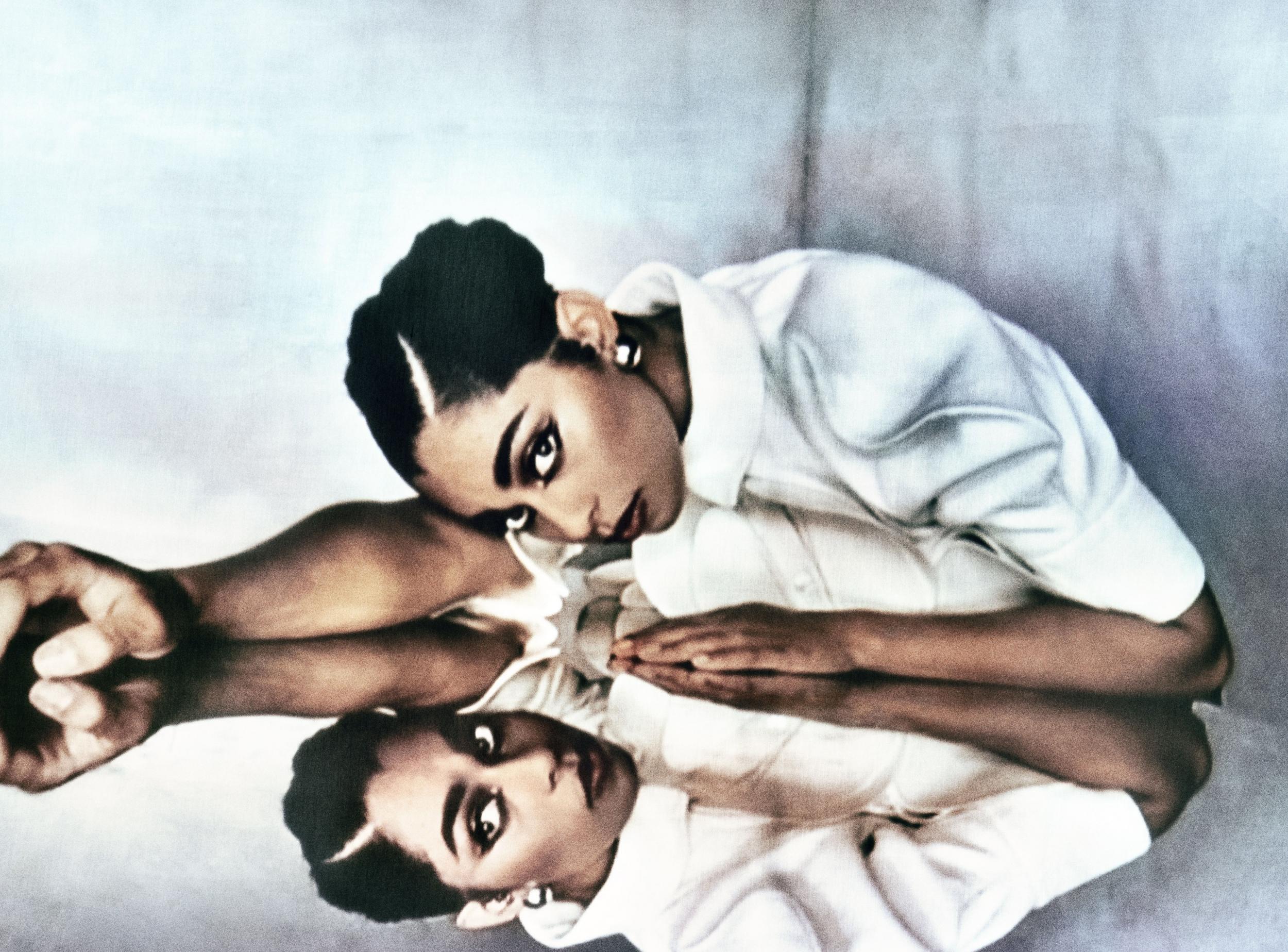
Celeste has earned valid comparisons to Billie Holiday, but the similarities extend far beyond the velvety nature of her voice. It’s in her phrasing, the way her languid delivery allows each vowel to swell to the point of almost bursting. Take “A Kiss”, the song at the heart of her radiant debut album Not Your Muse. Backed by muted guitar-picking, it’s a track designed to exhibit everything Celeste’s voice is capable of. Like the great female artists who came before her, she seems compelled to challenge society’s expectations of what forms her sense of self-worth. Her hit single “Stop This Flame” has been compared to Florence and the Machine but flies closer to Nina Simone’s wilful determination. And in Celeste’s song, as Simone often did, her voice complements the piano’s punchy contrapuntal rhythms. Not Your Muse is an album that will lure you back time and time again, as much for its technical brilliance as any of its other qualities. ROC
25) Things Take Time, Take Time – Courtney Barnett
Many of the songs on Things Take Time, Take Time suggest Courtney Barnett has attempted to process life events – a break-up, the climate crisis – through everyday minutiae. Skilfully woven in is a warning not to fall into nihilistic tendencies – even when faced with impending disaster. “Stars in the sky are gonna die eventually, it’s fine,” she sings on “If I Don’t Hear From You Tonight”. On “Write a List of Things to Look Forward To”, backed by beautifully textured Americana instrumentation, she wonders why we keep trying: “We did our best, but what does that really mean?” This album is Barnett navigating her way out of her own head, reminding herself – and her listeners – that it’s good to care about things. She couldn’t have picked a better time. ROC
24) Planet Her – Doja Cat
Doja Cat has come far since those heady days of “Mooo!”, the US artist’s 2018 song that pondered the existence of cows and (of course) subsequently went viral. Planet Her, a concept album about “a fictional planet on which all species and races of space exist in harmony”, is a sparkling collection of R&B-infused pop-rap. There’s a smattering of excellent features: she and The Weeknd compete to see who’s more horny on “You Right”, while Young Thug celebrates with her on “Payday”. On her own, though, she thrives, coming astonishingly close to Kendrick Lamar’s trademark husky flow on single “Woman”. Some critics might write her off as a passing fad. I say: don’t underestimate her staying power. ROC
23) Daddy’s Home – St Vincent
“Yeah, but can you do it sleazier?” That’s what Annie Clark, aka St Vincent, kept telling the musicians with whom she recorded her sixth studio album. And oh boy, did they deliver. Channelling the slinky-seedy grooves of Seventies New York, they’ve created a soul-sodden soundscape you can sink into like a velveteen bean bag. Ideally while slugging a retro cocktail you’ve stirred with a cold stiletto. On Daddy’s Home it sounds – for the first time in a decade – like Clark has slipped out of her high heels and found an equal strength in this barefooted soul. I’m wary of implying this is the real Clark, though, because I think all her personae are equally authentic expressions. As Candy Darling used to say: “I’m a thousand different people. Every one is real.” HB
22) Collapsed in Sunbeams – Arlo Parks
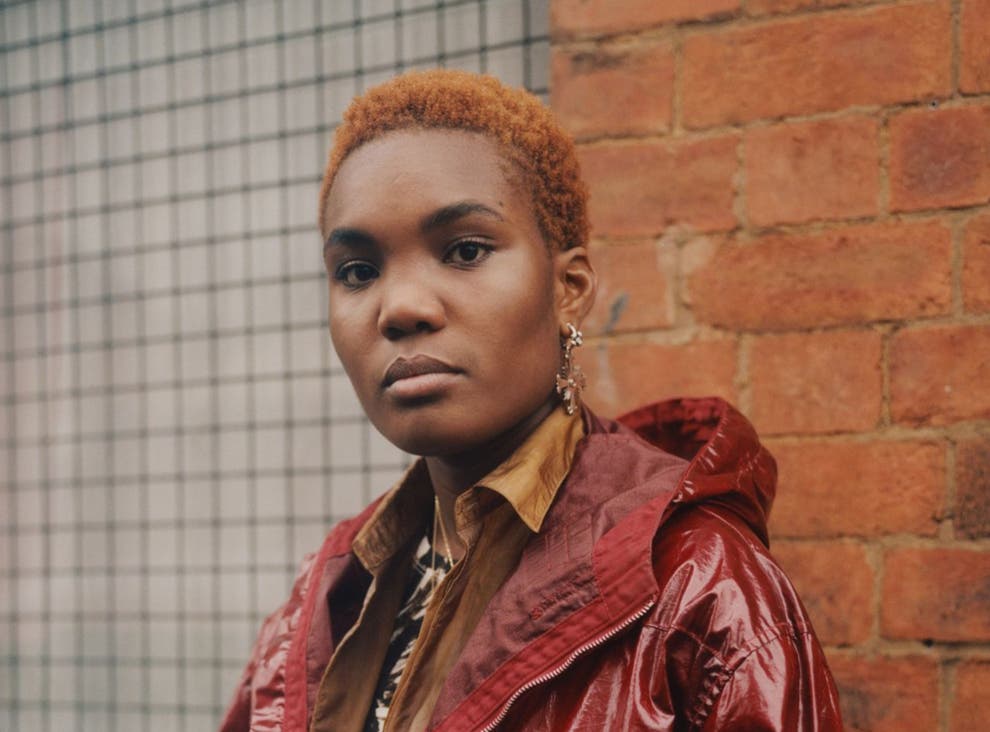
Arlo Parks sourced the lyrics for Collapsed in Sunbeams from the diaries she wrote during her early teens, but the album itself was recorded in an Airbnb flat. These are intimate thoughts, carefully enunciated in a public space. On “Hope”, she sounds like a busker regaling passersby as she utters: “You’re not alone.” The pedestrian atmosphere is accentuated by an electric guitar that sounds as though it’s echoing through the tunnels of the Underground. The charm of this record is how easy it is to drift in and out of. At times, Parks’s prism colours and ideas can leap out, scatter and startle you. But that’s how the light works. And I’m so glad Parks is here to brighten this dark year. HB
21) Long Lost – Lord Huron
Despite its 16 tracks, not once does Long Lost feel crowded. The pace is unhurried, the phrasing exquisite. It helps that the instrumentation is so ambitious in its scope, conjuring vast territories that span the Hawaiian languor of “At Sea” to the sauntering challenge of “Meet Me in the City”. The title track is a shivery, thrumming epic with swooning cello notes, plinks of piano, and lyrics that speak of the deceitful nature of the American dream. Outlaw country is rightfully getting a new lease of life with the emergence of country musicians such as Colter Wall and Brent Cobb. But Long Lost suggests artists outside the genre are just as enamoured by the possibilities it presents to explore modern America, cast with a series of flawed, gunslinging characters. Consider me lassoed. ROC
20) The Algorithm – Snoop Dogg
Algorithm, Snoop’s second full-length project this year, arrives after his appointment as Def Jam’s executive creative and strategic consultant. He’s clearly taking the role seriously. This album rolls out the creme de la creme: veteran stars such as Mary J Blige, Redman and Jadakiss, and more recent signings including Mississippi-born gospel singer Camino. It all fits seamlessly together, a rich tapestry of weed-toked slow jams, woozy psychedelic infusions and pimped-out west coast joyrides. “Big Subwoofer” – a joint effort from supergroup Mount Westmore – bounces up and down like a lowrider driving around Long Beach. Snoop winds things down at track 25, the outro – “You have reached your destination” – yet this record never takes a wrong turn. It’s a trip. ROC
19) Flora Fauna – Billie Marten
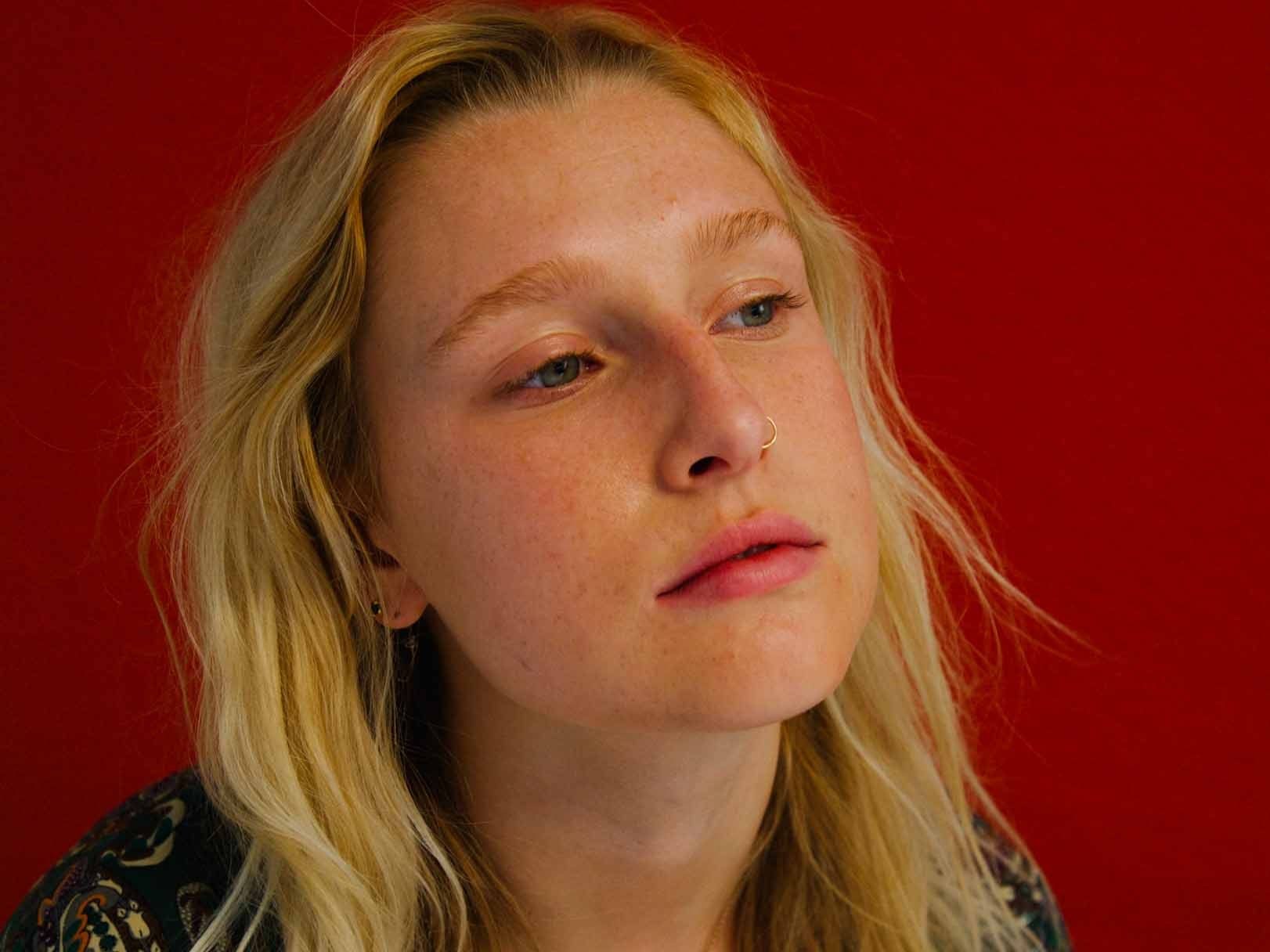
Since Marten was discovered on YouTube as a Yorkshire schoolgirl aged 12, words like “pure” and “pretty” have swathed her album releases: Writing of Blues and Yellows in 2016 and her 2019 follow-up, Feeding Seahorses by Hand. On Flora Fauna, Marten, now 22, shakes the descriptors off like a wet, gleeful dog. There is a new sense of liberation that manifests in noodling beats and an openness to experimentation that has been absent from her past music. Marten’s songwriting feels more confident than ever. None of this is to suggest that Flora Fauna is an unrecognisable transformation for Marten – across the album she stretches her voice into familiar, hushed shapes – but the record marks a clear evolution of an artist done with being called pretty. AN
18) Michigan Boy – John Grant
Like fellow Michigan boy Sufjan Stevens, Grant is so specifically autobiographical that his memories will spark those of his listener. “You know my mother sewed clothes for Bertha Wrunklewich/ That lady who I always thought was rich…” begins the title track. Grant’s deep, wise baritone leads us steadily through the golden funk of lyrics that read like short story prose. “Just So You Know” is a ballad he wrote to be played at his funeral. After two decades of worrying that his mother (who died over two decades ago) didn’t know much he loved her, he has decided to leave his friends and family in no doubt. “I know at times it hurt to see/ How my troubled mind could put/ The hurts on me,” he croons. But “I felt it that you loved me.” It’s a lovely, generous song. From a lovely, generous album. HB
17) Chemtrails Over the Country Club – Lana Del Rey
A great storyteller, Del Rey consistently delivers the who, what, where and when. She picks out the telling details – turquoise jewellery, the TV in the corner, “on the second floor, baby”. She sketches a backstory (“I come from a small town”) and then tells you how it all feels. In the Lanaverse, most things feel sexy-sad. Honestly, if music could wear make-up then hers would always go with smokey eyes and a vintage up-flick of liquid liner. Sometimes it would be smudged with tears or be left over from the night before, because Del Rey is always waltzing her way between the fetishised versions of the country club and the trailer park. One minute she’s wearing jewels in the swimming pool, the next she’s “getting high in a parking lot”. Del Rey says she has been recording country songs, and the melodrama of the genre is certainly a perfect fit with her brand. Interestingly, she ends the record with a loving, upbeat cover of Joni Mitchell’s “For Free”. Mitchell also disappointed feminists by refusing to sign up to the cause. I bet Del Rey knows that. I bet she doesn’t care. HB
16) King’s Disease 2 – Nas
As ever, Nas is his own lynchpin. Tracks including “Store Run” and “Moments” demonstrate the rapper’s gift as a lucid narrator of his own experience. Reflection has been common practice in his music (2012’s Life is Good) but it’s the interrogation of his youth that saves such tracks from being a mere trip down memory lane. Take “Store Run”, in which Nas reminisces about looking at the New York skyline, “shootouts with my guys, pouring this white wine”. Elsewhere in the song, he asks: “What happens when dealers reduce to addicts?/ What happens when kings don’t see their potential status?/ What’s your exit plan?” King’s Disease 2 finds Nas where he has always been – comfortable in himself and at ease with confronting his past. As he puts it: “Face to face with my omens, I never ran.” AN
15) Carnage – Nick Cave and Warren Ellis
For an album written in the pandemic’s stasis, there’s a compelling amount of travel on Carnage. Cave is always sing-speaking about throwing his bags in the back of cars, riding trains and having sex in motel beds. As in dreams (said to be about the shifting of emotions), there is a lot of water imagery: swimming pools, rain and rivers. Against the gentle throb of “Old Time”, he “steps back” to childhood, and above the tense strings of “White Elephant” he threatens to “shoot ya for free”. It offers a lovely balance between the two sides of a remarkable and committed artist. It’s blunt and hopeful. Full of flesh and spirit. But also written by a man who just told an online fan not to store his acid in a vegemite jar in the fridge because no self-respecting Aussie chills the ‘mite. Which makes him sound like a man we can all trust. HB
14) Happier Than Ever – Billie Eilish

Happier Than Ever is full of things most of us don’t have to deal with – NDAs, interviews, paparazzi – and yet Eilish weaves them around universal woes, with such a knack for sharp, insightful lyrics that it never comes across like her diamond shoes are too tight. “The strangers seem to want me more than anyone before,” she sings on opener “Getting Older”, a song whose disorienting beat sounds like the pulsing of blood you hear when you’re about to faint. “Too bad they’re usually deranged.” She sniggers – the first of many. Despite what the newly platinum-blonde hair and perky album title might have led you to believe, Eilish’s taste for melodrama and darkness remains. Her musical mission statement is that you must come to her – she whispers; she smirks; she makes you lean in and then grabs you by the throat. The album dips its toes into genres Eilish hasn’t touched before – country and bossa nova among them – but it is mostly more of the same intimate, gothy electro-pop that Eilish does better than anyone. Alexandra Pollard
13) Already, Always – Bess Atwell
Brighton-based artist Bess Atwell emulates Big Thief through the assured, unhurried instrumentation on “Love is Not Enough”. She’s fatalistic on “Time Comes in Roses”, a magnificent elegy for a mother-daughter relationship. Her voice is heavy with love and concern for a friend on “Dolly”, then, on the piano-led “Silver Fir”, she makes a mosaic out of childhood memory, framing it with an abstract, east Asian-influenced piano motif. The album frequently presents itself like a diary, where to-do lists and everyday anxieties sit comfortably next to her deepest and most beautifully expressed feelings. What a spectacular record. ROC
12) Vince Staples – Vince Staples
Vince Staples – produced by rap-favourite Kenny Beats – is another outlier among outliers from an artist adept at shaking free of what came before. The album is in tune with the same Nineties G-funk that has previously inspired Staples, only this time, he slows it down. Initially at least, with downbeat tempos on early tracks such as “Sundown Town”. But even the album’s more energetic tracks feel fuzzed-out, thrumming in the way that music does when you’re pleasantly buzzed on a smouldering hot afternoon – like sunstroke but in a soothing way. Interludes – supplied by fellow rappers on previous albums – now come courtesy of his mother (“The Apple & The Tree”) and childhood friend (“Lakewood Mall”). No wonder Staples called this his most personal record yet. Perhaps it’s this new vulnerability that makes the album so great. Or maybe it’s the whip-smart one-liners. Or the vivid storytelling. Staples will say this latest triumph is just a dude doing some different things. AN
11 ) Conflict of Interest – Ghetts
“Let’s talk about legacy,” Ghetts announces. “I don’t care about nostalgia, my best years are ahead of me.” After 15 years of hard graft and refusing to chase pop trends as some of his peers did, one of grime’s most respected elder statesmen signed to Warner. A controversial move, perhaps, but his major label debut proves he hadn’t abandoned any of his ideals – because the artist born Justin Clarke doesn’t demand attention, he commands it. It’s why Ed Sheeran is compelled to give one of his best performances to date on “10,000 Tears”, a tenderly wrought portrait of heartbreak and struggle. Across the album, Ghetts unabashedly exhibits all sides of himself: from the underdog who rose to the top on operatic opener “Fine Wine”, to the scorned lover on “Dead to Me”, to the sparring partner on the lively “IC3” with Skepta. “‘Dem man are playing question time/ Talking about who’s next in line/ Who the best in grime?/All we wanna know is who’s gonna stand the test of time,” Skepta raps. With an album like this, Ghetts has nothing to worry about. ROC
10)This Is Really Going to Hurt – Flyte

Inspired by the end of frontman Will Taylor’s eight-year relationship, This is Really Going to Hurt spins away from the Lou Reed and Bowie glam-rock influences of Flyte’s 2017 debut, opting instead for a blissful, Seventies California sound. The band have capitalised on their LA recording base by inviting seasoned session players to contribute gorgeous strings sections. Producers Andrew Sarlo (Big Thief, Bon Iver) and Justin Raisen (Angel Olsen) help lend a fragility to songs whose notes drift gently down like dust caught in a sunbeam. Taylor’s willingness to pour out his emotions with such candour is laudable. He growls at prospective lovers on one song, predicting nothing but disaster. Earlier, he’d flounced over the jaunty piano of “I’ve Got a Girl”, telling his ex-bandmate: “This show is over/ Cut the light and fade to black/ I was your biggest fan/ Now I want my money back.” As the album progresses, his words grow lighter, more accepting. By the time he reaches “Never Get to Heaven”, you sense certain wounds have begun to heal. ROC
9) Seventeen Going Under – Sam Fender

Sam Fender broke through as a council estate kid singing about his upbringing in North Shields. His debut album tackled poverty, male suicide, class wars and white privilege with the kind of directness that only comes from lived experience. While he’s balked at comparisons to Bruce Springsteen, it’s easy to understand why they’re made: the 27-year-old has a similar, hollering vocal style, along with a penchant for wheeling sax solos. This hasn’t changed a jot here, but Fender has refined both his songwriting and his sound. He saves his most vituperative tones for The Man (“I don’t have time for the very few!/ They never had time for me and you!”) on the tension-filled “Aye” and the unforgiving “Long Way Off”. He blazes on “The Dying Light”, which takes Dylan Thomas’s plea to heart and spins a stark piano intro into a rage against impending darkness and crying mothers and yet more dead young boys. “I’m damned if I give up tonight,” he cries. A real cri de coeur. ROC
8) Jubilee – Japanese Breakfast

Jubilee is an evolution for Michelle Zauner, who records under the moniker Japanese Breakfast. The indie singer’s previous albums – 2016’s Psychopomp and 2017’s Soft Sounds From Another Planet – were meditations on mourning following the death of her mother. Her newly released debut memoir Crying in H Mart (based on her viral New Yorker essay from 2014) is grounded in the same grief. Jubilee’s euphoric opener “Paprika” is the first sign that this is not business as usual for the typically shoegazing singer. Zauner told The Independent that she “felt ready to move on for the first time” with her new record, which traverses Eighties-indebted dance, swirling alt-pop and homespun lo-fi across a tight 10-song track list. There are reprieves – where the energy quietens to syrupy, fluid ballads on which Zauner’s voice lolls as opposed to skips – but the emotional journey is always upward. AN
7) For Those I Love – For Those I Love

Platonic love between men should be celebrated. Few contemporary artists express this better than Ireland’s David Balfe, who goes under the name For Those I Love for his debut of the same name. The album is a visceral and focused study of grief, guilt, rage and hope. Balfe, who self-produced For Those I Love on his computer, successfully blends dance music with spoken-word poetry; he’s extraordinarily astute in the way he processes his emotions. But the album isn’t what you’d call “unfiltered” – he wrote more than 76 songs after the suicide of his best friend, Paul Curran, which were then condensed into this nine-track project. His words land with precision and depth, not one wasted. The classic house influences and chirpy recurring synth motif conjure a sense of youthful innocence, heightening the grief of a life cut short. Balfe frequently finds himself talking directly to his friend, poring over memories from their childhood and teenage years. “If I knew what was wrong, I would tell you...” he murmurs, voice trembling, on closing track “Leave Me Not Love.” A staggering album. ROC
6) Montero – Lil Nas X
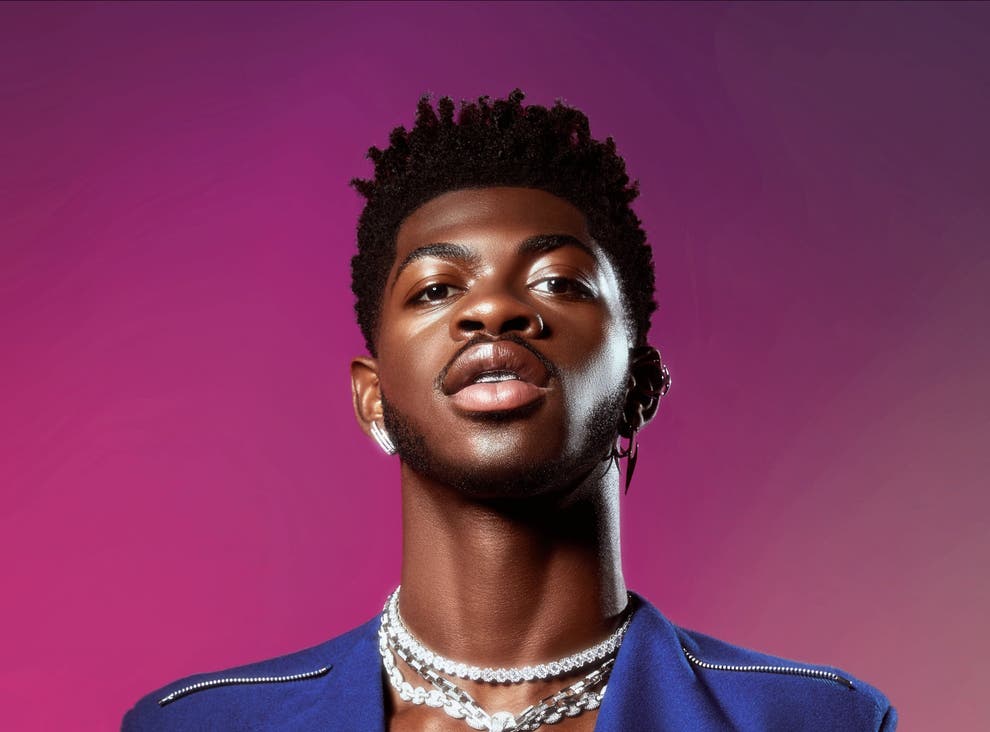
On his recent, parping, brass-backed single “Industry Baby”, Lil Nas X reassured fans: “I told you long ago, on the road/ I got what they waitin’ for…” Now, he boldly delivers it. Over Montero’s 15 tracks, he pulls together as many bright, witty and varied textures as his own, headline-grabbing wardrobe. There’s Latin, rock and acoustic guitar, moody indie moments, yearning concert-hall violin, sidewalk brass and all manner of keyboards (including some jazzy contributions from Elton John). Lil Nas scrolls gleefully through it all, confidently mashing genres. Miley Cyrus pops in to add her raspy ballast to “Am I Dreaming”, while rapper Doja Cat spit-croons over the slick synth hook of “Scoop”. What punches through it all is Lil Nas’s energised and emotional expression of his queer identity. It’s joyous to hear the 20-year-old southerner (who grew up believing he’d have to spend his whole life in the closet) bouncing off the beats to proclaim: “I’m a pop n***a like Bieber, ha/ I don’t f*** bitches, I’m queer, ha.” Now where did I put that disco stetson? HB
5) Call Me If You Get Lost – Tyler, the Creator
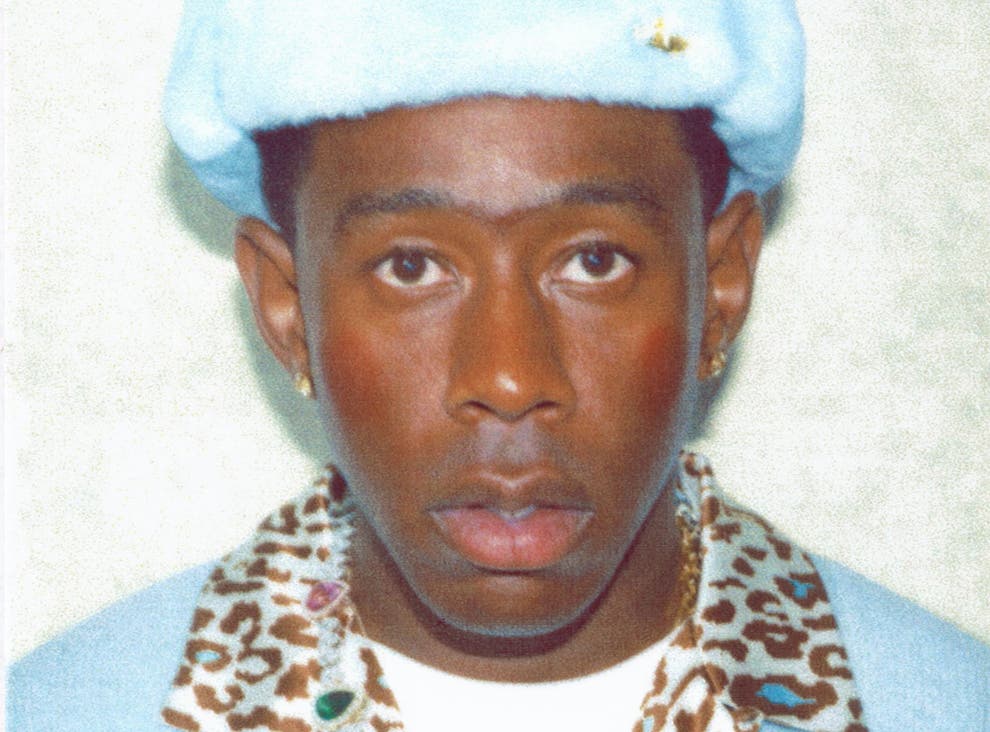
Much of this album feels like the apotheosis of all Tyler’s past works. You have the hostility, the sinister haunted house beats of 2011’s Goblin on “Lumberjack”. There’s a swipe at white performative wokeness on “Manifesto” that recalls the scorn of 2013’s “Pigs”, from Wolf. And the innovative use of guest stars such as YoungBoy Never Broke Again on “Wusyaname“ follows the same unorthodox approach as his full-to-bursting 2015 album, Cherry Bomb. “Wilshire” is an astounding stream-of-consciousness, a nine-minute epic about falling for someone unavailable: “It’s lines I could never cross/ But you got something that make all them good intentions get lost.” While the production here is as slick as IGOR, though, there’s less of a through line. IGOR was the devastating pieced-together parts of a broken relationship. Call Me If You Get Lost plays fast and loose with its subjects, relying instead on the music itself to carry listeners through. I love the flute motif that crops up here and there, finally on closer “Safari”, like the soundtrack to a classic poolside scene in a 007 movie. Tyler, the Creator continues to defy expectations. Long may that continue. ROC
4) Prioritise Pleasure– Self Esteem

When she split from Slow Club in 2017, Rebecca Taylor felt exhausted at having to communicate the “supposed authenticity” of being “indie”. On her second record as a solo artist, performing under the name Self Esteem, she has found that realness elsewhere: mainstream pop. Prioritise Pleasure is foot-stomping, gum-snapping fun, with some experimental moments thrown in for good measure. Most notable is the spoken word track “I Do This All the Time”, a millennial spin on Baz Luhrmann’s “Everybody's Free (To Wear Sunscreen)”, on which she tells an ex: “I want the best for you but I also hope you fail without me.” The pull of these songs lies in Taylor’s hard-earned confidence. Bedroom-dancing hooks about self-worth, self-love and yes, self-esteem are defiant mantras rather than empty platitudes of the “live, laugh, love” variety. Across the album’s 13 tracks, she flits easily between pop’s peripherals and its core, dispensing emotional catharsis all the way. AP
3) We’re All Alone in This Together – Dave
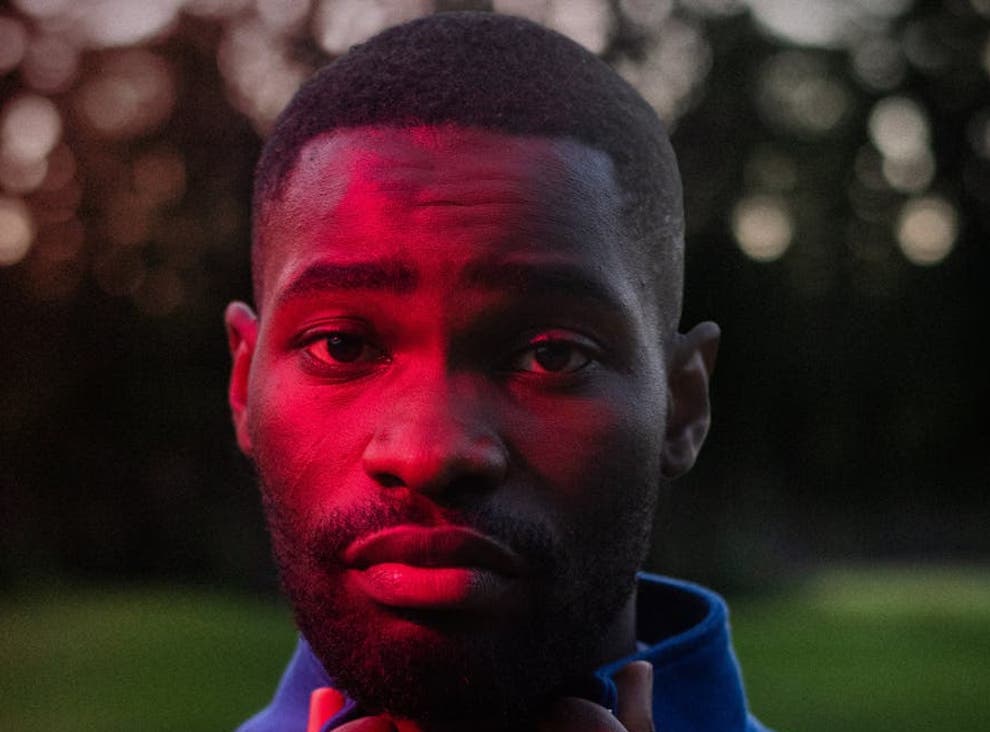
While Dave has already proven himself an astute chronicler of Britain’s racism, WAAITT finds him digging deeper into its murky history. On “Three Rivers”, the rapper traces the journeys of immigrants from the Caribbean, eastern Europe and the Middle East to our “steadier shores”. Now, he says, “asylum’s got them in a different war… They’re key workers, but they couldn’t even get in the door.” Even those immigrants who hit the big time, like Dave, are left struggling with anxiety and “survivor guilt”. Despite all his fame and money, he tells listeners that he still books Airbnbs using a white man’s profile picture. WAAITT is a compelling, conscious-jolting account of a life of two halves. HB
2) Blue Weekend – Wolf Alice

“We’ve become songwriting adults.” That’s how Wolf Alice’s guitarist, Joff Oddie, described the leap of confidence between the London rockers’ second album, Visions of a Life (2017) and Blue Weekend. No small boast, given that the passionate, genre-spanning Visions won the 2018 Mercury Prize and saw the four-piece hailed as “the best band in Britain”. But the minute fans start playing Blue Weekend, they’ll understand what Oddie means. The careening thrills of their teenage and early twenties tunes have been replaced by more assured – but still intensely emotional – structures. If you imagine their old songs as rally cars, the new ones are still driven as wildly, but with steelier focus and in-built roll cages. As with Visions, this third album sees the band hopping between styles – folk, garage rock and shoegaze – only now they’re steering deeper into the corners and controlling the skids. HB
1) Sometimes I Might Be Introvert – Little Simz

Sometimes I Might Be Introvert is the most thrilling album of the year. It’s loaded with drama. Huge Bond theme-level orchestration. Massive soulful choirs. Sexy vintage soul samples. Seventies Afrobeat. Brass, flute, beats and the voice of a rapper who knows when to punch forward and when to step back. Little Simz’s ego and self-doubt are held in tense balance between lines such as, “I’m a Black woman and I’m a proud one” and, “I’m guilty, it’s a little self-centred.”
In a time where we find ourselves craving nuanced intelligence, 27-year-old Simbiatu Ajikawo knocks it out of the park with her cool, collected rumination over a series of varied grooves. She is a rapper/commentator who thrills with the political and spills with the personal. So against the cinematic brass of “Introvert” she spits cold, venomous lines about “mothers burying sons, young boys playing with guns”. Then against the smoky-smooth retro-soul loop of “Two Worlds Apart” she hisses: “Drama, drama, drama… please don’t tell my mama I been smokin’ marijuana…”
Later, she throws a whole London borough’s worth of glottal stops at a relationship confessional that builds to a breathless: “You use me/ confuse me/ It’s truly/ a movie…” “Protect My Energy” is a twinkling Eighties pop jam, while “Point and Kill” ft Obongjayar is a deep rolling, organic Afroblues groove that swells and flares with luxurious brass as it progresses. “Can’t stop me, ahh!” Simz sings over ululations and organs on the following track, “Fear No Man”. Who’d want to stop this woman? HB
Join our commenting forum
Join thought-provoking conversations, follow other Independent readers and see their replies
Comments











Bookmark popover
Removed from bookmarks